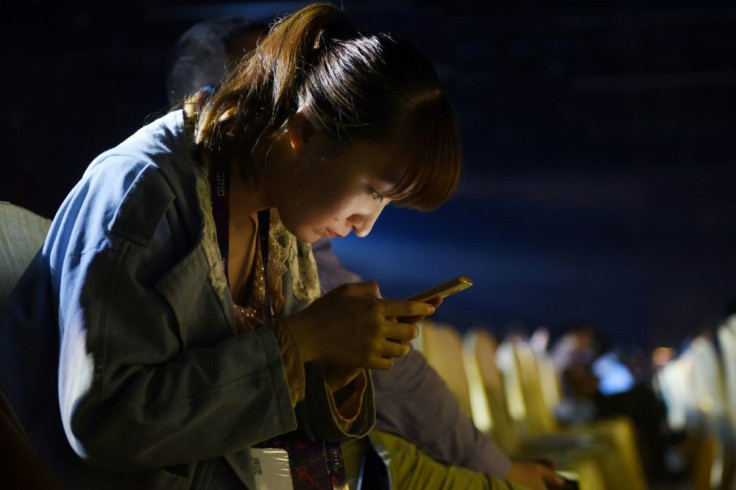China Blocks Clubhouse App That Gave Rare Access To Uncensored Topics
A rare uncensored app that had attracted Chinese internet users to freely discuss taboo topics, including the mass detention of Uighurs, democracy protests in Hong Kong and the concept of Taiwanese independence appeared to have been blocked on Monday night.
Authoritarian China deploys a vast and sophisticated surveillance state to scrub the internet of dissent and prevent citizens from accessing international social networking sites like Facebook and Twitter in what is often known as the "Great Firewall".
But the Clubhouse app had for a brief while side-stepped the censors and drawn crowds of Chinese internet users -- but appeared to quickly fall foul of the censors.
The American invite-only audio app allows users to listen and participate in loosely moderated live conversations in digital "rooms".
And in recent days, Chinese online users have filled those rooms discussing highly censored subjects -- such as Beijing's sweeping incarceration of mostly Muslim minority Uighur communities in the far western Xinjiang region.
By Monday night, however, the app showed an error message to users without a VPN to establish a secure connection, and Chinese-language rooms quickly turned to discussion over the app's ban.
Top trending groups turned to topics about the ban, and some Chinese language users began to discuss security implications of being on the app and whether they would face official monitoring.
"I saw many rooms chatting cross-Straits issues and sensitive issues... and thought this app wouldn't last too long," one Chinese-language user lamented after the app was blocked, referring to the thorny issue of Taiwan.
"What comes after the block is compiling the list of people on the platform," worried another.
Clubhouse was launched in May last year and is currently only available on Apple devices, something only wealthier Chinese consumers can afford.

It rocketed in popularity after billionaire Elon Musk participated in a conversation on the app earlier this month.
Over the weekend the number of Chinese language discussions had drawn wider attention including on social media platform Twitter.
"A young woman from mainland China just said on Clubhouse: this is my first time getting on the real internet," Isabelle Niu, a journalist listening to a conversation, tweeted on Sunday.
Taobao, a popular online marketplace used by millions daily, and other e-commerce sites was selling membership invitations for sale with prices ranging from 10 to 100 yuan ($1.5-$15), allowing some to bypass restrictions placed on invitations.
Kaiser Kuo, host of the China-focused Sinica Podcast, live-tweeted on Sunday some of the conversations he was hearing in a room discussing the Uighur situation.
He noted how Han Chinese -- the dominant ethnic group in China -- and people from the persecuted Uighur community were interacting in the space.
An AFP reporter heard a speaker identifying as mainland Chinese express opposition to the term "concentration camps" -- although acknowledging the existence of facilities.
Many of those listening in were fascinated by the candour of the online discussions.
"I'm in a Taiwanese-run room in Clubhouse where 4,000 Mandarin speakers -- including Uyghurs and Han Chinese IN CHINA, and outside are talking about... everything," Berlin-based journalist Melissa Chan tweeted.
"From surveillance, to friends who've left re-educations camps, to normal stuff."
But analysts had warned that it was likely Beijing would prevent access to the app before long.
"The window for listening in on frank Clubhouse conversations about politics in Chinese is already closing," said Fergus Ryan, at the Australian Strategic Policy Institute's International Cyber Policy Centre, ahead of the ban.
© Copyright AFP 2024. All rights reserved.





















